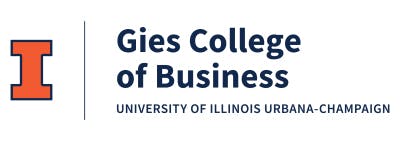Find the right degree for you
Filter by
University of Illinois Urbana-Champaign
Master of Science in Accountancy (iMSA)
Northeastern University
Master of Science in Data Analytics Engineering
Indian Statistical Institute
Postgraduate Diploma in Applied Statistics
O.P. Jindal Global University
MBA in Business Analytics
Pontificia Universidad Católica de Chile
Magíster en Business Analytics
Universidad de los Andes
Maestría en Inteligencia Analítica de Datos
Why pursue a data analytics degree?
With a master's degree in data analytics, you can expect to take courses in data mining, statistical analysis, machine learning, and data visualization, which all provide a strong foundation in data handling and interpretation.
As you advance, you'll hone crucial skills like programming, data modeling, and database management, preparing you for complex data challenges.
Graduates can pursue a career as a data analyst, business analyst, data scientist, or business systems analyst. You can also explore careers in artificial intelligence and machine learning. This degree unlocks opportunities in finance, health care, marketing, technology, and more, making it an ideal choice for those seeking a versatile and in-demand skill set to excel in today's data-driven job market.
Data analytics professionals in the US earn, on average, between $87,500 and $126,250, with advanced roles commanding even higher salaries. Additionally, the Bureau of Labor Statistics projects a 35% growth in data analytics jobs by 2031.
Benefits of earning a data analytics degree on Coursera
Designed to fit your schedule
All online degree programs are flexible, meaning you can complete coursework at your own pace while balancing your work and personal commitments.
Access world-class universities
Find affordable degree programs from an array of accredited universities. Learn from distinguished faculty and industry experts passionate about helping you achieve your goals.
Build in-demand job skills
Get job-ready with degree programs designed to develop real-world skills through hands-on learning experiences and industry partnerships.
Grow your network
Become part of a global learning community and establish strong relationships that can open new and unexpected opportunities throughout your career.
Hear why students enjoy learning on Coursera
Find helpful articles related to data analytics degrees
Do you need a degree to become a data analyst? If so, which one? Learn these answers and more.
A master’s in data analytics can prepare you for a new career or make you a more competitive candidate in one you’ve already started. Learn more about this potentially impactful degree today.
Learn how much you can expect to make as a data analyst, with tips to boost your salary.
Careers in data science are in-demand. Step into the world of big data and machine learning.
Frequently asked questions
A master's degree in data analytics is a graduate program focused on equipping students with advanced skills in data processing, analysis, and interpretation. Students typically take courses in areas such as data mining, statistical analysis, machine learning, data visualization, and database management. This curriculum fosters proficiency in data collection, cleaning, and manipulation, as well as the ability to extract valuable insights to support informed decision-making. Graduates emerge with a strong skill set in data-driven problem-solving, making them highly sought-after professionals capable of handling complex data challenges across various industries.
On Coursera, you’ll find online data analytics degrees at the graduate level. To figure out which one might be best for you, it helps to first understand why you want to earn a degree and what you hope to get out of your education.
Beyond your larger goals, consider what you’ll learn and how you’ll learn it, as those factors can be important when it comes to determining the best program for you. Take time to review the various data analytics degree options on Coursera, paying particular attention to the “Academics” and “Student experience” sections for more information.
Yes, all online degree programs available on Coursera are directly conferred by accredited institutions. Accreditation is important because it shows that an institution meets rigorous academic standards, eases your ability to transfer credits, and helps employers validate the quality of education on your resume or application.






